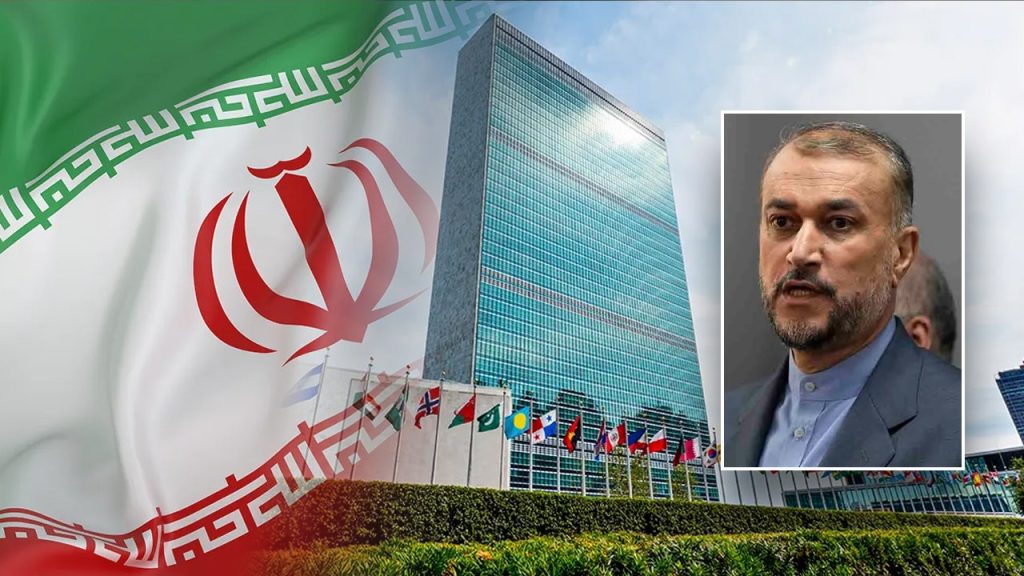Republican Senator James Lankford is demanding that the U.S. cancel the visa for Iranian Foreign Minister Hossein Amirabdollahian to attend a United Nations Security Council meeting following Iran’s attack on Israel. Lankford cited Amirabdollahian’s ties to Hamas terrorists and Iran’s threats to Israel as reasons for denying his entry to the U.S. He also highlighted the historical significance of this week marking the anniversary of Hezbollah’s bombing of the U.S. Embassy in Beirut, Lebanon, as further justification for denying entry to a senior Iranian official.
Despite calls from Lankford and others to deny the visa, a U.N. diplomatic source confirmed that Amirabdollahian would attend the meeting, prompting responses from the State Department and United Nations. While visa records are confidential, the U.S. takes its obligations as the host nation of the United Nations seriously, allowing diplomats from all countries to attend U.N. meetings. State Department Spokesperson Matthew Miller emphasized the U.S.’s ability to restrict the movements of diplomats while they are in New York for U.N. meetings, indicating potential limitations on what Amirabdollahian can do outside the U.N. headquarters.
The Iranian government launched a retaliatory attack on Israel over the weekend in response to an earlier strike on its diplomatic mission in Damascus, with the U.S. attributing the attack to Israel. Reports of Amirabdollahian’s plans to travel to New York City for the U.N. Security Council meeting, which will focus on Palestinians, also suggested that Iran may agree to pull back from further action if a ceasefire deal for Gaza can be brokered by the U.S. While the State Department reiterated its obligations under the U.N. Headquarters agreement, concerns remain about Iran’s destabilizing activities and support for terrorism.
Amidst the controversy surrounding Amirabdollahian’s potential visit, the United Nations emphasized the importance of allowing all member states to meet and discuss global issues, even as Secretary-General António Guterres condemned Iran’s missile strikes against Israel. The Iranian Mission to the United Nations did not respond to requests for comment, and the State Department continued to emphasize its obligations while maintaining concerns about Iran’s actions. As the situation unfolds, it remains to be seen whether the visa for the Iranian foreign minister will ultimately be granted or denied, and what restrictions may be imposed on his activities while in New York.
Senator Lankford’s calls to deny the visa reflect broader concerns about Iran’s activities and threats to Israel, with historical events like Hezbollah’s attack on the U.S. Embassy in Beirut further heightening tensions. The U.S. government’s responses and decisions regarding the visa for Amirabdollahian, as well as potential restrictions on his movements in New York, illustrate the complex dynamics at play in balancing diplomatic obligations with security concerns. As the situation continues to develop, the international community will be closely monitoring the unfolding events and decisions related to Iran’s presence at the United Nations Security Council meeting.


